DE PALMA, TARANTINO, SCHRADER - CLAYTON DILLARD REVIEW OF 'ARE SNAKES NECESSARY?'
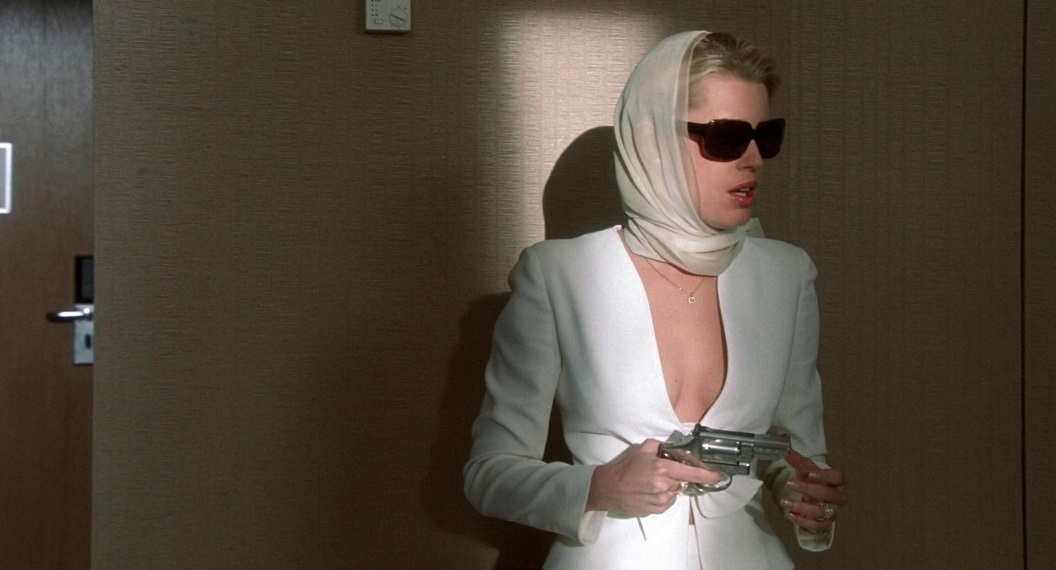
This is from October of 2021, but I just found this intriguing article from the Montréal journal Monstrum. It's a dual review by Clayton Dillard of the De Palma/Lehman novel Are Snakes Necessary? and Tarantino's novelization of his film Once Upon a Time in Hollywood:
In 1969, De Palma was completing his third feature film, The Wedding Party, and was on his way to becoming a central figure within the New Hollywood. It wasn’t until 1973, with Sisters, that De Palma turned the majority of his creative focus to Hitchcockian riffs on noirish plotlines, in which men, typically, become obsessed with the identity of a woman. Are Snakes Necessary? is in many respects a riff on a riff—it’s De Palma lightly sending up himself and his thematic preoccupations while still piecing together a fully formed thriller storyline. Take Nick Sculley, a thirtysomething photographer, who will play witness to high-level political corruption and, eventually, tragedy. Not only is his name nearly identical to Jake Scully, the protagonist of De Palma’s Body Double, but his circumstances neatly parallel that of Jack (John Travolta) in Blow Out (1981). Other characters will seem familiar to anyone acquainted with De Palma’s films; there’s Fanny Cours, an 18-year-old intern and “political junkie” who is, as De Palma and Lehman write it, “in the full flush of carnality,” and who recalls Liz Blake (Nancy Allen) in Dressed to Kill for how her seductive charm is irresistible to men. Add in a pair of murderous male political figures and a shadowy woman that’s essentially a redux of Rebecca Romijn’s character in De Palma’s Femme Fatale (2002), and the ingredients for pulpy delight are afoot. The novel’s primary drawback, though, is how the economical prose cannot rival De Palma’s audio-visual acumen; in fact, even as prose, one longs for the wilder, stranger metaphors of Elmore Leonard, who has written nearly a dozen novels in a comparable register and with more aplomb.Still, saying Are Snakes Necessary? isn’t up to the level of the crime genre’s maestro shouldn’t suggest it’s inferior within its own contexts. Indeed, as the novel winds toward a close, De Palma and Lehman find a dark and amusing means of quite literally cutting into the heart of the reader’s pent-up desire to see the back cover’s promise of “a female revenge story” fulfilled. It delivers the goods. What’s more engaging from a broader perspective is considering why De Palma and Tarantino have written novels at all. In an interview with the website Crime Reads, De Palma explains that, “As a director I like photographing women more than I like photographing men. As a writer, I like focusing on the woman’s point of view.”1 Though De Palma ends his commentary there, the implication is that prose affords the author the chance to consider perspective in a manner that the director, faced with the immediacy of the moving image, cannot. But for anyone who’s seen De Palma’s films, we should recall that, quite often, scenes unfold from the perspective of women, and often in ways that complicate questions of POV. The opening of Dressed to Kill is the most complex case, in which Kate Miller (Angie Dickinson) masturbates in the shower while looking at a man, presumably her husband, shaving in the mirror. Her sense of pleasure is mirrored, too, by the camera’s scanning of her naked body, which, if we’re talking gazes, is an explicitly erotic and objectifying one, not least because the character’s body is glimpsed in close-up, absent her face (in fact, this is not Dickinson’s body, but a body double). Therefore, we have an instance, sans dialogue, in which the sequencing of images thematize the matter of looking and, to put it another way, seeing. In many ways, the control of the image is tantamount to the entire premise of New Hollywood’s divergence from classical Hollywood’s “genius of the system,” as André Bazin called it. The individual—the auteur—holds the capacity to create, to manipulate, and to puppeteer from outside the frame.
Rick’s solution to aging into obscurity in Once Upon a Time in Hollywood is to work with then-burgeoning auteur Roman Polanski, a prospect that seems imminent by the film’s end. Of course, in hindsight, Polanski’s 1977 sexual-abuse case can’t help but factor into a contemporary conversation about how men, as either directors or writers, are capable of communicating female presence and perspective. Tarantino was criticized during a Cannes press conference for not giving Sharon Tate (Margot Robbie) more screen time in the film; his response in the novelization is almost defiant, as the character is minimized further in favor of expanding Cliff’s background, in particular, into a wife-killing, bloodthirsty cinephile. If that sounds ridiculous, leave it to Tarantino to give his stuntman a knack for cinema, with extended sections on Cliff’s response to I Am Curious (Yellow) (Vilgot Sjöman, 1967) and taste for titles that now comprise the fulcrum for the Criterion Collection’s non-English language selections. There’s also an entire chapter devoted to Cliff’s encounter with Aldo Ray in Spain, in which the stuntman gets the veteran actor drunk. It concludes with Rick chastising him, saying, “When they give you your SAG card at the fuckin’ union office, they give you three rules: One, they gotta give you turnaround. Two, don’t do any nonunion shoots. And three, if you ever do a film with Aldo Ray, under no circumstances give him a bottle.” To what extent one finds this amusing likely depends on one’s tolerance for Tarantino’s own self-indulgent cinephilia, particularly the sort that imagines film-history-as-fan-fiction worthy of entire chapters. Nevertheless, it also cuts to the heart of what’s at stake in both of these novels as it pertains to Tarantino and De Palma: as artists aging into their later years (Tarantino claims he’ll make just one more film), they’re paradoxically intrigued by the question of artistic evolution while also stubbornly resolute in their thematic obsessions and artistic perspectives.
In The Card Counter, Paul Schrader’s latest film, the protagonist, a blackjack sharp who spent eight and a half years in military prison for his role as an Abu Gharib torturer, offers this response to his protégé, who questions if there’s any meaning in the monotony of doing the same thing over and over again: “You just go around and around until you work things out.” Schrader, who wrote the screenplay for De Palma’s Obsession (1976), might as well be speaking through his character in this moment, and in many respects he speaks for De Palma and Tarantino, too: their filmographies suggest slight variations on a theme, explored through repetition. Though Schrader hasn’t written a novel, his films are explorations that spring, in large part, from an early critical work of his own called Transcendental Style in Film: Ozu, Bresson, Dreyer (1972). Like De Palma, nearly fifty years later, the themes remain the same. In writing their first novels, De Palma and Tarantino implicitly ask us to grapple with how time affects our perceptions of ourselves and of the past. Forget snakes; the real question for both of these writer/directors becomes: is change necessary?




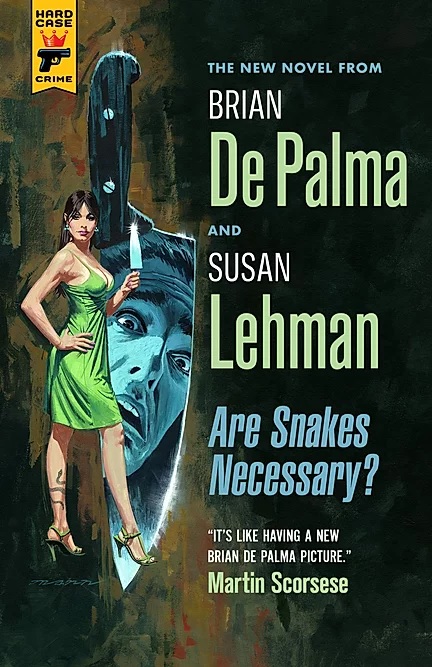
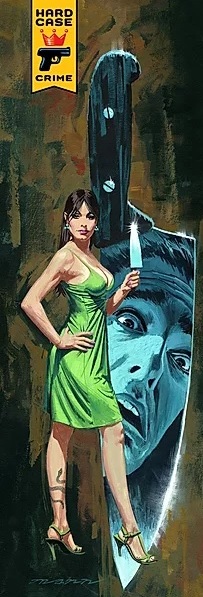 At
At 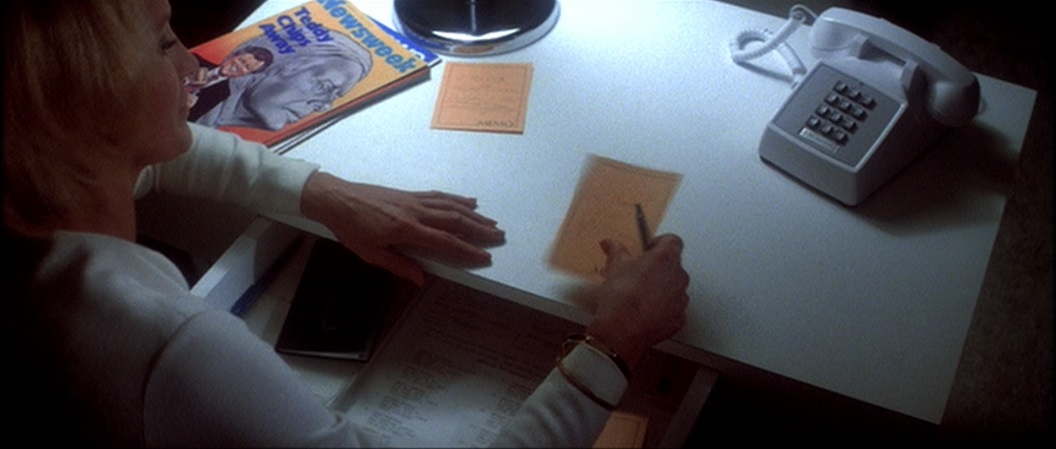
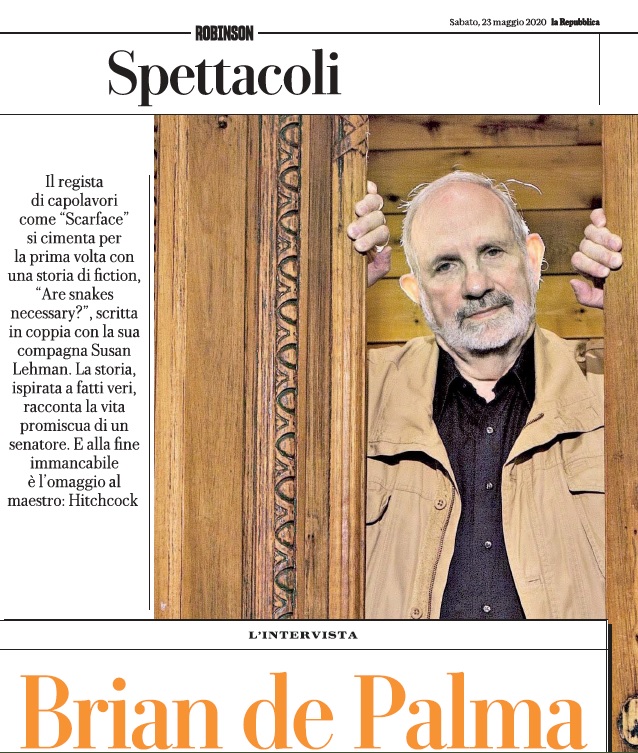
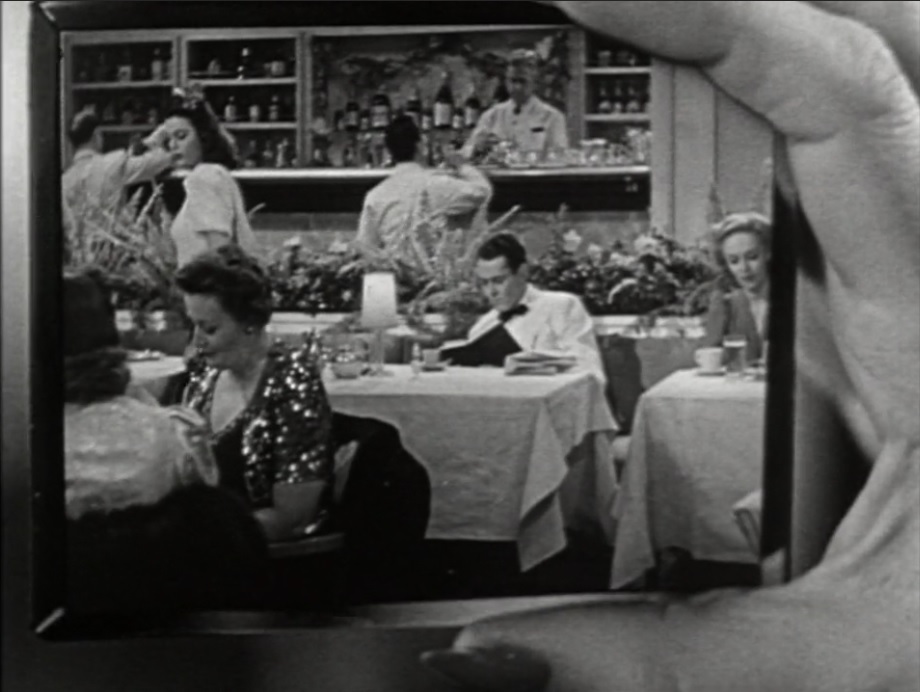
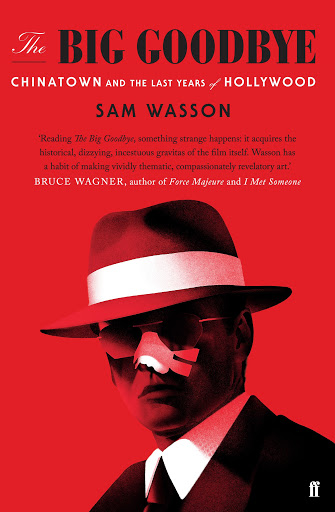 A few days ago,
A few days ago,